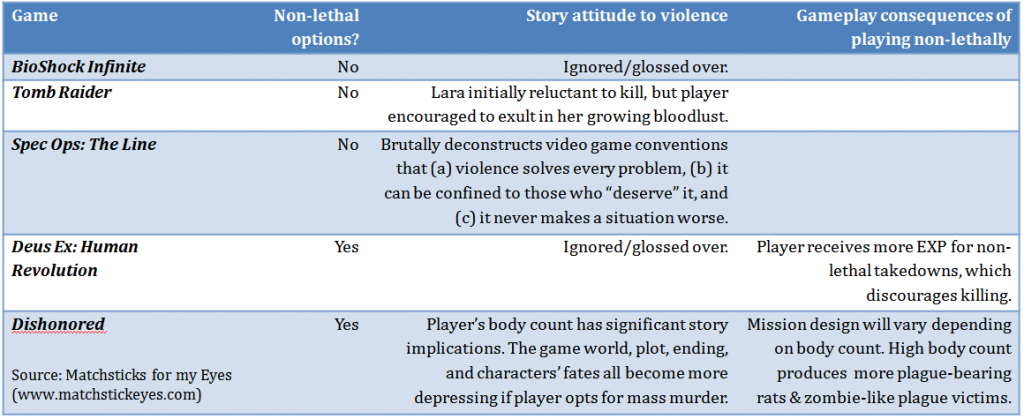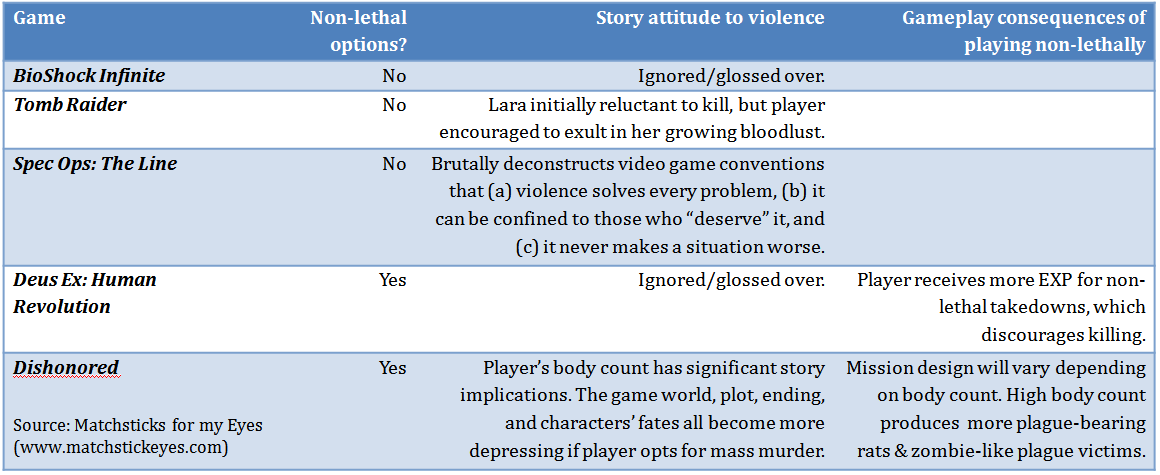I originally wrote this in 2013, contrasting the approach taken by five big-name games towards violence. Arguably, recent years have seen greater awareness of what’s possible for a non-violent game, such as “walking simulators”, a renaissance in adventure games, the growing popularity of creation-focused games such as Kerbal Space Program, and outright subversive titles such as This War of Mine. I look forward to seeing what options are available in another two years.
***
“They may be called the Palace Guard, the City Guard, or the Patrol. Whatever the name, their purpose in any work of heroic fantasy is identical: it is, round about Chapter Three (or ten minutes into the film) to rush into the room, attack the hero one at a time, and be slaughtered. No one ever asks them if they want to.”
– Terry Pratchett
I’ve been thinking lately about violence in entertainment; my response to such; and what creators themselves have to say about it. In the last twelve or so months, I’ve played five games that symbolise different attitudes to violence: three “traditional” shooters in which there is no non-lethal option (BioShock Infinite, Tomb Raider, and Spec Ops: The Line), and two stealth/action games (Deus Ex: Human Revolution, Dishonored) that permit a gentler approach. Below, I table their key differences.

 Read more here
Read more here